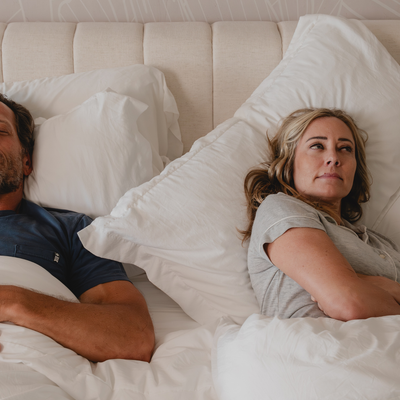Continuous Positive Airway Pressure (CPAP) therapy is a common treatment for sleep apnea, a condition where the airway collapses during sleep, causing breathing difficulties. While CPAP therapy is effective, it can cause some uncomfortable side effects, such as nose sores. These sores are caused by the pressure and friction of the CPAP mask against the skin.
Here are 3 things you can do to prevent nose sores while using a CPAP mask:
1. Get the Fit Right
Right, not too tight. The first thing to do is to ensure that your CPAP mask is properly adjusted to your face. A mask that is too tight can cause unnecessary pressure on the skin, leading to nose sores. On the other hand, a mask that is too loose can cause air leaks, which can affect the effectiveness of your therapy. A properly fitted mask should feel snug but not too tight. Make sure to adjust the straps and headgear to achieve the right fit. If you're having trouble, give us a call! (800-698-8000)
2. Use Nose Pads
Another way to prevent nose sores is to use Gecko Nasal Pads. These are soft silicone pads that fit over the bridge of the nose, providing a protective layer between the mask and the skin. Gecko nose pads can help reduce pressure and friction, which are common causes of nose sores. They are easy to apply and can be used with any CPAP mask.
3. Consider Switching Styles
If you have tried adjusting your mask and using nose pads, and still experience nose sores, consider switching to a hybrid or nasal style CPAP mask. These types of masks are designed to cover less of the face, reducing the pressure and friction on the skin. A hybrid mask covers the mouth and nose, while a nasal mask only covers the nose. Talk to your doctor or CPAP supplier to determine if a different mask style is right for you.
In conclusion, nose sores are a common side effect of CPAP therapy but can be prevented with proper mask adjustments, the use of nose pads, and switching to a different mask style. If you are experiencing nose sores or other discomfort while using your CPAP mask, speak to your doctor or CPAP supplier for advice on how to improve your therapy experience.












































